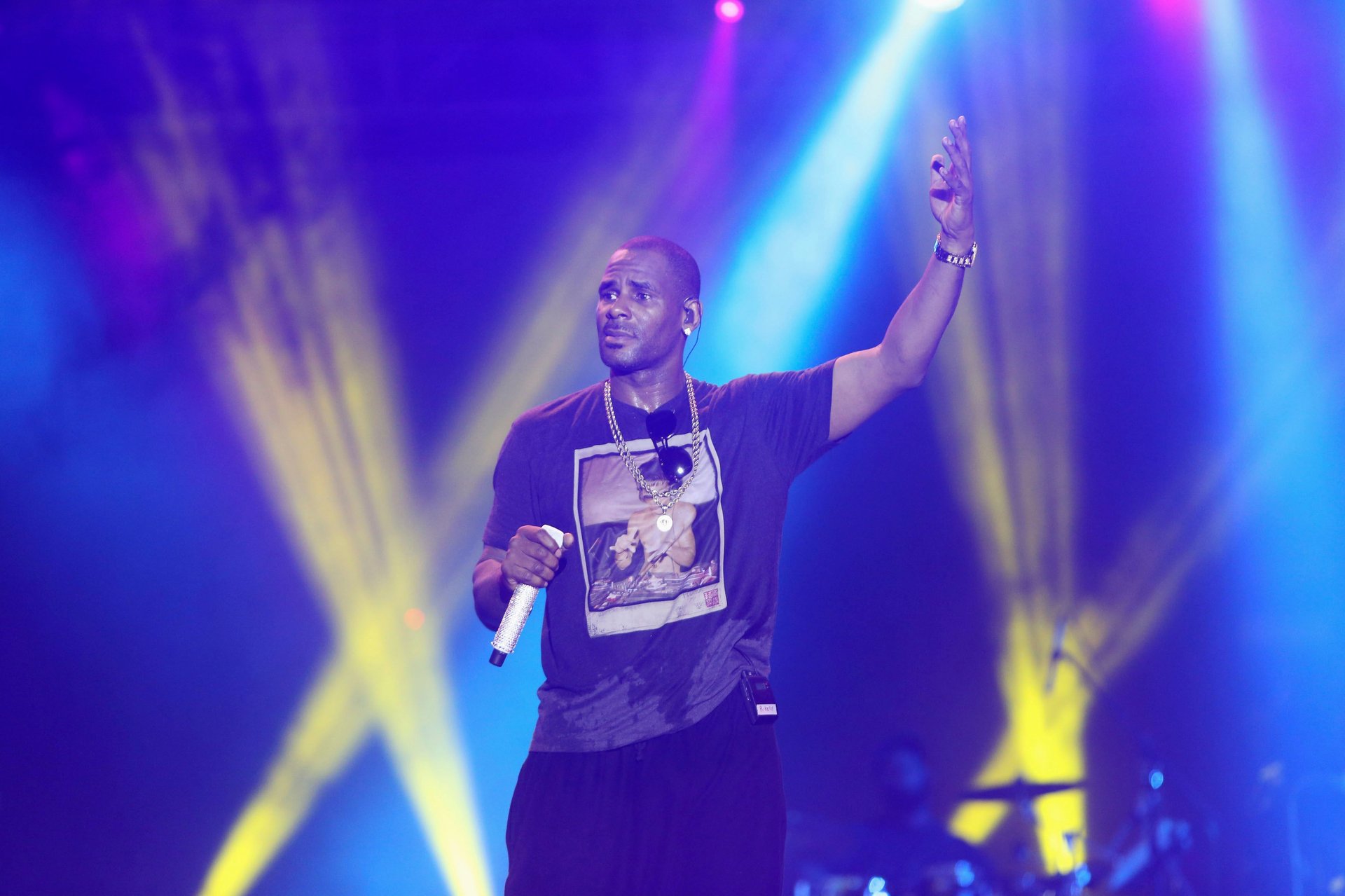The music industry’s #MeToo moment is still a long way away
Early this morning, Chicago singer, songwriter, and producer R. Kelly dropped a rambling, 19-minute song titled “I Admit It,” addressing the numerous rumors and allegations that have followed him throughout his fraught, 30-year career.


Early this morning, Chicago singer, songwriter, and producer R. Kelly dropped a rambling, 19-minute song titled “I Admit It,” addressing the numerous rumors and allegations that have followed him throughout his fraught, 30-year career.
In it, the embattled singer touches on his illiteracy, desperate financial situation, and abuse as a child, and denies an entire host of accusations made against him by multiple young women—including the assertion that Kelly runs what amounts to an abusive “sex cult” in the Chicago and Atlanta suburbs.
The accusations were detailed last July in an explosive Buzzfeed report by Jim DeRogatis—an investigative reporter who Kelly bemoans in “I Admit It,”—and includes testimony by women who claim they were held against their will, isolated, brainwashed, and subjected to “rules” that dictated when they could eat, use the bathroom, and how and when they would engage in sexual acts, which Kelly would ultimately record and share with friends. Kelly has previously denied all accusations through a lawyer. He has 23 lawyers, according to the new song.
A brief history of R. Kelly’s misconduct allegations
At 50-years-old, R. Kelly has sold hundreds of millions of records and remains a prevailing voice in pop music and R&B. He also has a well-documented history of physically and emotionally abusing underage girls that spans nearly a quarter century. Countless articles are dedicated to this timeline, with the common thread being the abuse of young black women.
It begins in 1994 when he illegally married the late singer Aaliyah when she was 15. Then, between 1996 and 2002, three teenage girls publicly filed lawsuits against Kelly, each accusing him of illegal underage relationships. Kelly settled all three cases in exchange for nondisclosure agreements. Soon after in 2002, Kelly was indicted on charges of child pornography after a video surfaced of him having sex with and urinating into the mouth of a 14-year-old. Kelly was acquitted for the crime in 2008 (paywall). The timeline is also smattered with allegations of battery, additional sex tapes with minors, a sexual harassment claim brought by a 17-year-old intern, and out-of-court settlements with numerous other women.
#MuteRKelly?
In a piece for the New Yorker in the months following his Buzzfeed report, DeRogatis attempted to answer the question many people on social media were asking this morning: Why, despite his laundry list of allegations, has R. Kelly’s career continued to thrive? Indeed, it seems that even in the age of #MeToo, the music industry has failed to achieve the kind of Weinstein-styled takedowns that have been carried out in politics, media, and Hollywood.
The #MuteRKelly campaign was an attempt to rectify this by ending financial support of Kelly’s career while pursuing a formal conviction for his sexual crimes. And it saw some success: For about a week, most major streaming services announced that they would prevent users from seeing Kelly’s songs under their algorithmic playlists or services. But what many speculated could mark the beginning of a takedown of Kelly soon dissipated when Spotify quietly reversed its decision in early June. The #MuteRKelly movement faded.
Why isn’t R. Kelly canceled?
Unlike Harvey Weinstein, Matt Lauer, Bill Cosby, or Louis C.K., the hip-hop industry’s most notorious sexual criminals continue to walk free. Kanye West-muse Ian Connor remains in music’s buzziest circle despite 21 rape allegations, while West himself seemed to tease on Ye that it could be a matter of time before #MeToo gets him.
DeRogatis speculates in his New Yorker piece that the industry and its consumers are reluctant to address Kelly’s behavior because it would require the hard work of separating the art from the artist, an act that would force music lovers to not only shun Kelly, but also the art of other pop and hip-hop abusers, from Dr. Dre to Michael Jackson. Columnist Jamilah Lemieux addressed this particular dilemma today in a video entitled “Why Protecting Black Women Is More Important Than Your Love for R. Kelly.”
But ultimately, as DeRogatis argues, the one thing that is ensuring Kelly’s continued success as a serial predator, even in the age of #MeToo, is the relative lack of social value afforded to black women and girls in America. He recalls on the words of Washington Post editor Karen Attiah, who expressed the following in an op-ed last year:
“If even a fraction of the allegations against Kelly are true, his continued success hinges on the invisibility of black women and girls in America,” Attiah says. “As long as black women are seen to be a caste not worthy of care and protection, his actions will not receive widespread outcry . . . . The saga of Robert Kelly says more about America than it does about him.”